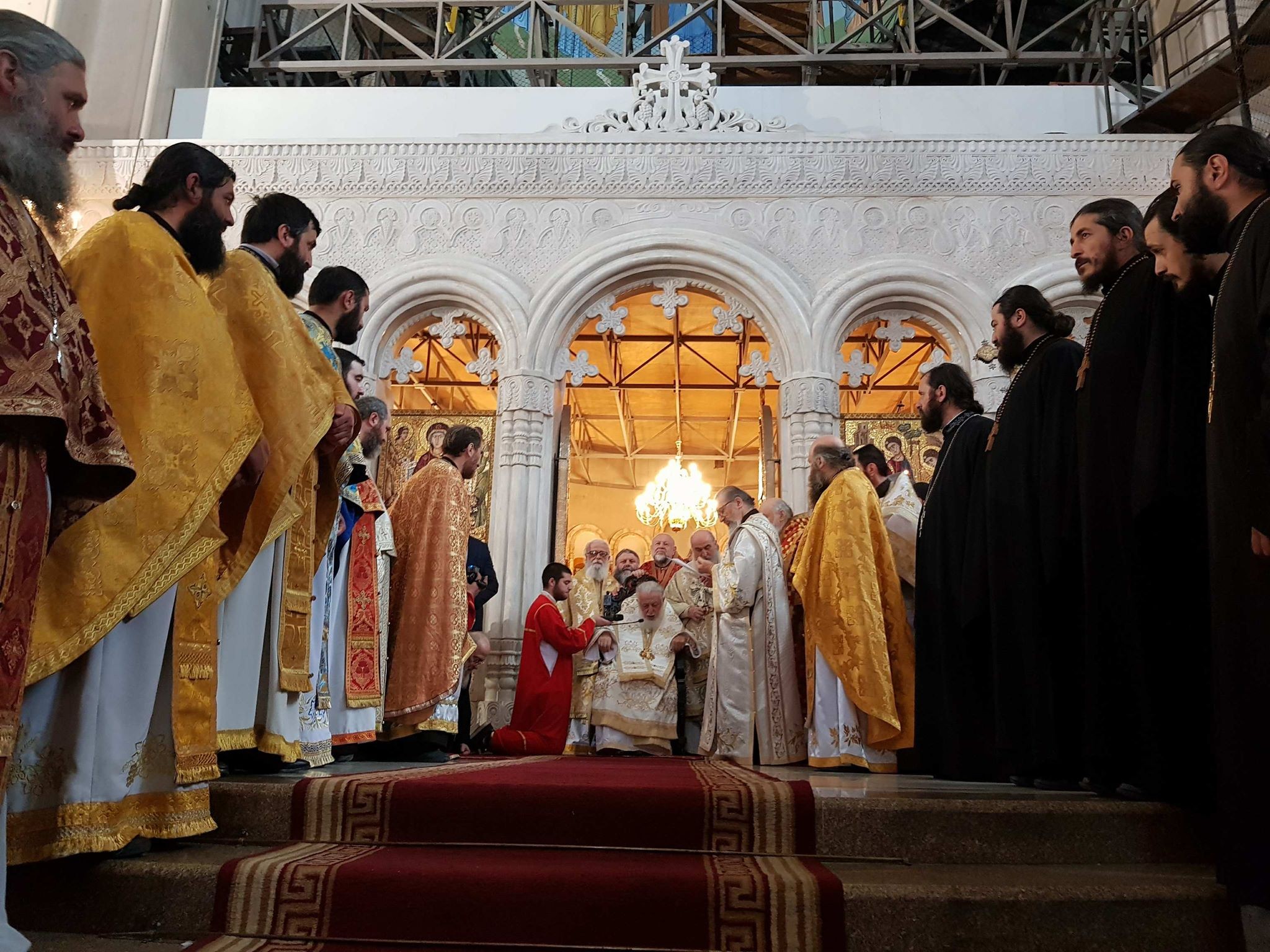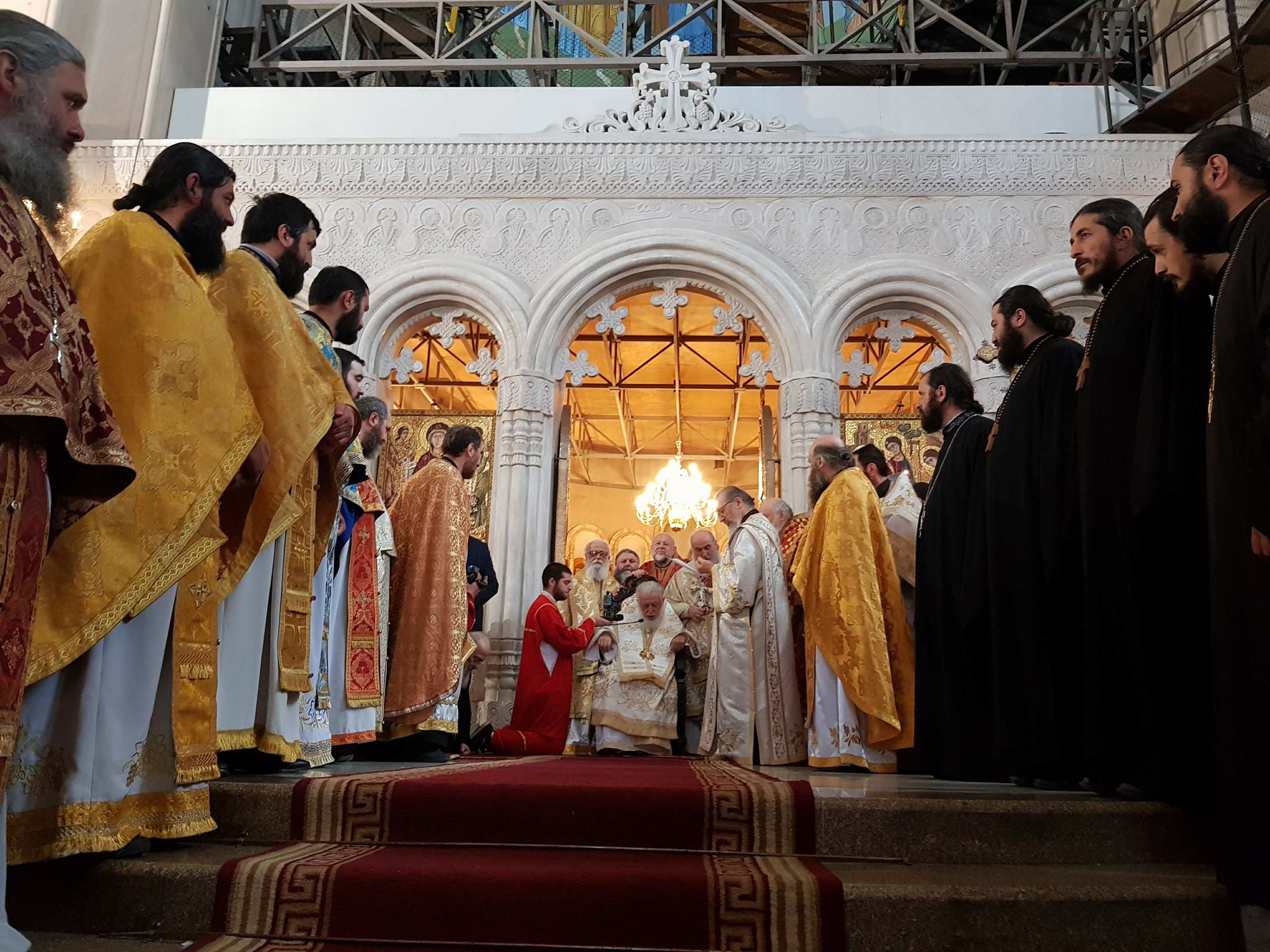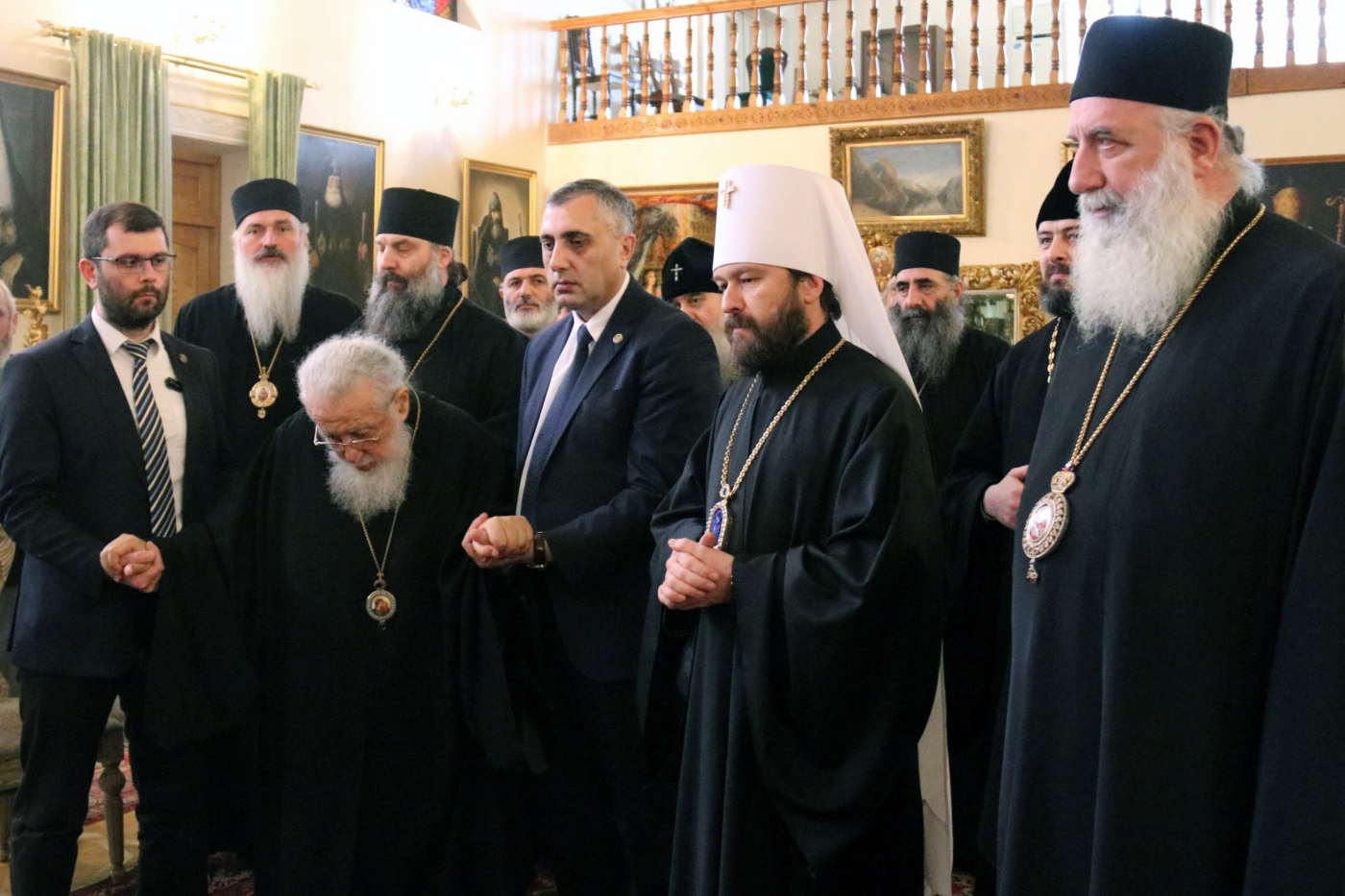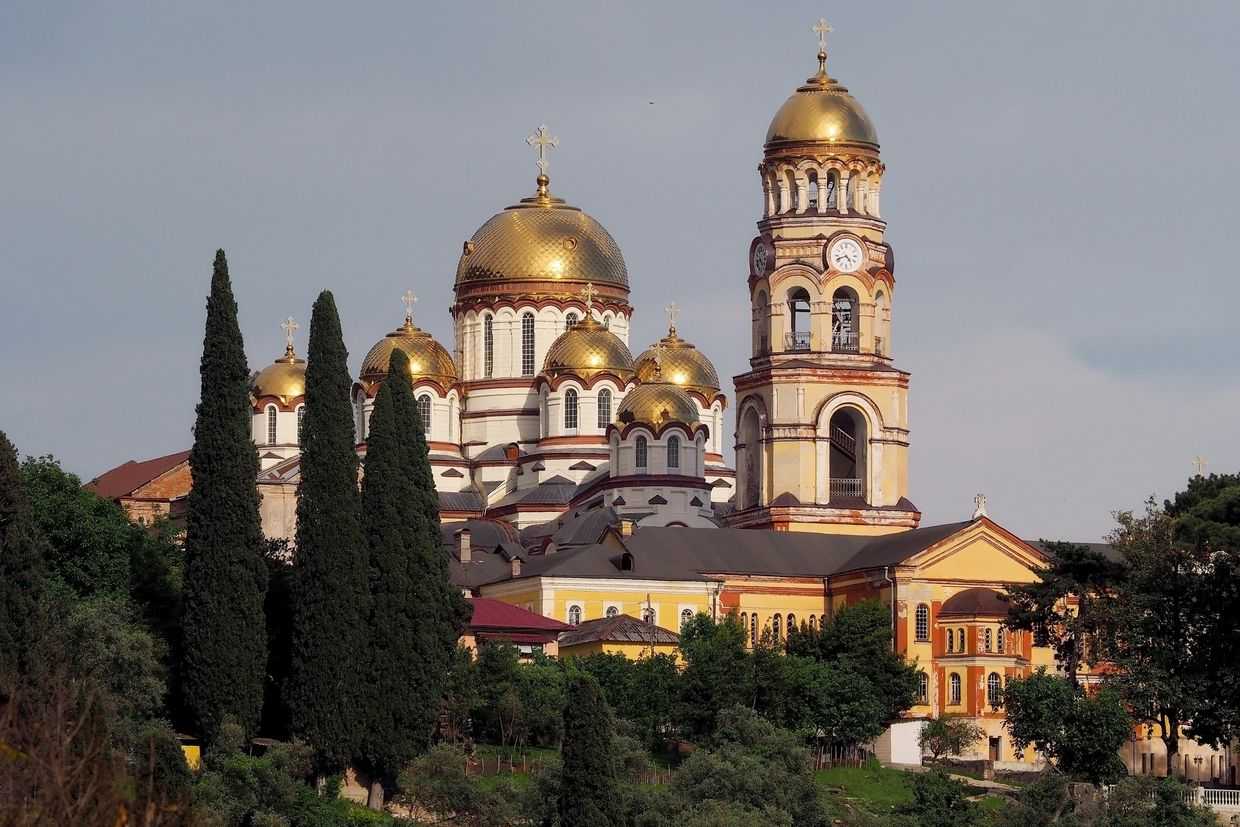Georgian Government and Church remain tight-lipped over Ukraine Church independence


The Georgian government and Georgian Orthodox Church have declined to oppose or support the Ukrainian Orthodox Church’s independence from their Russian counterpart. The Ukrainian Church’s independence was officially recognised by Patriarch Bartholomew of Constantinople on 6 January, Orthodox Christmas Eve.
Both the government and Georgian Church have faced criticism from some quarters for not supporting their Ukrainian counterparts.
In his Sunday sermon, Metropolitan Grigol (Berbichashvili) of Poti and Khobi Eparchy, called the decision of ‘Georgian political leaders’ to ‘refrain from congratulating’ Ukraine ‘unfortunate’.
‘A new centre is being formed in the Orthodox [Christian] world […] If the Georgian Church becomes a part of the orbit of this “new” centre, consider the Georgian state to be in trouble!’, Grigol warned, referring to the Russian Church.
Metropolitan Grigol is among 47 members of the Holy Synod, the decision-making body of the Georgian Church.
While not directly criticising the Synod’s protracted position on the issue, with Sunday’s sermon he made his position clear.
So did a handful of activists who gathered on Sunday in front of the Patriarchate in Tbilisi, calling on the Synod to recognise the autocephaly — independence — of the Ukrainian Church.
On Sunday, another member of the Holy Synod, Metropolitan Ioseb of Shemokmedi Eparchy, openly congratulated the Ukrainian Church on being granted the tomos, a document, of autocephaly.
Tomos of discord
Patriarch Bartholomew of Constantinople recognised as the first among 15 ‘equal’ Orthodox Christian leaders worldwide, made the Patriarchate of Constantinople’s decision official on 6 January.
After holding a Christmas Eve service at Saint George’s Cathedral in Istanbul, Bartholomew handed over a signed ‘tomos of autocephaly’, a decree granting canonical independence to the Orthodox Church of Ukraine (Kyiv Patriarchate), to its new head Metropolitan Epiphanius.
Bartholomew called on other Orthodox Christian churches to endorse the decision.
None of the other Autocephalous Orthodox churches has endorsed the 6 January tomos so far, while the Serbian, Polish, and Russian churches have openly denounced the move.
The Ukrainian Church asked for the autocephaly in April last year, an initiative which was actively supported by Ukraine’s President Petro Poroshenko.
The Ukrainian leader promised that those wishing to continue to adhere to the local church under the Moscow Patriarchate would be free to do so.
Nevertheless, the Moscow Patriarchate vehemently condemned the event, preemptively ending ‘Eucharistic unity’ with the Constantinople Patriarchate in October.
The 6 January event effectively ended the Ukrainian Church’s position under the Moscow Patriarchate’s jurisdiction, which has been the case since 1686.
The Abkhazian Church
Immediately after the 6 January announcement in Istanbul, Georgian Archpriest Shio Mujiri, the incumbent to the patriarch’s throne, told the media that the Georgian Church’s synod would make their position public after they ‘read the text of the tomos’ and convened a Holy Synod meeting.
In their early reactions, the Georgian Church vowed they would decide on the issue only after Moscow and Constantinople’s patriarchates ‘confirm their final official decisions’.
So far, the Georgian Church has not elaborated further.
Nino Burjanadze, former Parliamentary Speaker and leader of the non-parliamentary Democratic Movement — United Georgia Party, warned Georgian ‘politicians and experts’ against supporting the independence of the Ukrainian Church.
‘In that case, I’m sure the Russian Patriarchate will automatically recognise the independence of the Abkhazian Church’, Burjanadze warned during a press conference on 9 January.
The Abkhazian Orthodox Church is currently split into two competing groups — one seeking recognition as a jurisdiction under the Russian Orthodox Church, headed by Vissarion Apliaa, and another, pushing for full autocephaly, headed by Dorotheos Dbar.
The Russian Orthodox Church still formally recognises the Georgian Church’s jurisdiction over Abkhazia and South Ossetia.
In late October, the pro-Russian Council of the Abkhazian Orthodox Church preemptively condemned Bartholomew’s decision on Ukraine, calling it another ‘schismatic’ attempt to ‘extend his influence’ over other Orthodox Christian churches in detriment to the canonical rights of the Moscow Patriarchate.
During tours to Middle Eastern and East European Orthodox churches in 2018, the chief of the Russian Church’s external relations, Metropolitan Hilarion Alfeyev, visited the Georgian Patriarchate in Tbilisi twice, in April and December.
According to the Georgian Church, during his 10 December visit, Alfeyev ‘expressed concerns over problems in Ukraine’ and shared with them documents ‘expressing’ the position of the Russian Church on this issue.

Waiting for the Church
On 7 January, Parliamentary Speaker and the executive secretary of the ruling Georgian Dream party Irakli Kobakhidze told journalists that the government’s position ‘will be voiced’ after ‘communicating’ with their ‘Ukrainian friends and, naturally, with the [Georgian Orthodox] Patriarch’.
After attending an Orthodox Christmas church service on 6/7 January, Georgian Prime Minister Mamuka Bakhtadze also refused to clarify the government’s position.
Bakhtadze told journalists that the question fell within the realm of ‘canonical relations’ and that the Georgian Orthodox Church ‘had already commented’ on the issue.
On 11 January, President Salome Zurabishvili shared the same sentiment.
‘It’s not possible for me, as president of Georgia, to be less responsible than the Patriarchate is today’, Zurabishvili told journalists during her press conference on Friday, the first since her inauguration.
Leaders of the opposition European Georgian party were quick to congratulate Ukrainians on Christmas Eve and lambasted the government for their undecided position.
Gigi Ugulava, one of the party’s leaders, called the silence ‘political myopia and a shame’.
Several other religious communities in Georgia, including the Evangelical–Baptist Church of Georgia and the Georgian Muslims’ Union, also congratulated Ukraine on the occasion.
For ease of reading, we choose not to use qualifiers such as ‘de facto’, ‘unrecognised’, or ‘partially recognised’ when discussing institutions or political positions within Abkhazia, Nagorno-Karabakh, and South Ossetia. This does not imply a position on their status.






